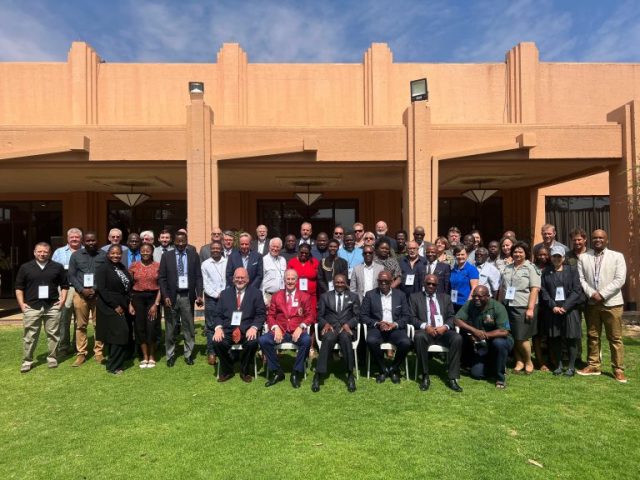Staff Reporter
WINDHOEK, Oct. 17 — During the 21st African Wildlife Consultative Forum held in Windhoek, Namibia, Minister Pohamba Shifeta expressed his deep concern over the global trend of increasingly restricting hunting. He underscored the urgency of addressing this issue and developing mechanisms to counter the growing opposition to hunting practices.
Shifeta emphasized that wildlife conservation plays a pivotal role in the economies of many African countries. He highlighted how well-established wildlife industries significantly contribute to job creation, bolster rural and national economies, and provide direct benefits to local communities.
The Minister pointed out that hunting, when conducted sustainably and ethically, is an effective means of managing wildlife populations. Furthermore, it can serve as a valuable tool in curbing poaching. He also noted that hunting revenues are often reinvested into conservation efforts and provide support to local communities.
Shifeta’s call for the development of mechanisms to counter the mounting opposition to hunting is both timely and relevant. Recent years have witnessed a growing movement against hunting, both within Africa and globally. This movement has been fueled by various concerns, including issues related to animal welfare, the impact of hunting on wildlife populations, and the perceived lack of benefits for local communities.
However, it is crucial to recognize that hunting can indeed play a valuable role in wildlife conservation when it is conducted in a sustainable and ethical manner. Sustainable hunting can serve as a powerful deterrent to poaching by offering alternative income sources to local communities. It also aids in wildlife population management by removing excess animals that may compete for resources or cause harm to crops.
Moreover, the revenues generated from hunting can be reinvested in critical conservation initiatives, including anti-poaching patrols, habitat restoration, and scientific research. In many African countries, hunting is a significant source of employment and economic support for local communities.
It is essential to engage in a balanced and informed discussion about the role of hunting in wildlife conservation. The potential benefits of sustainable hunting must be carefully weighed against the potential risks. Additionally, strict guidelines and ethical standards should govern hunting practices to ensure that they align with conservation goals.
Minister Shifeta’s call for the development of mechanisms to counter opposition to hunting is a commendable step in the right direction. Collaboration and constructive dialogue are necessary to ensure that hunting remains a sustainable and effective tool for wildlife conservation.
Post Views: 5



Leave a Reply